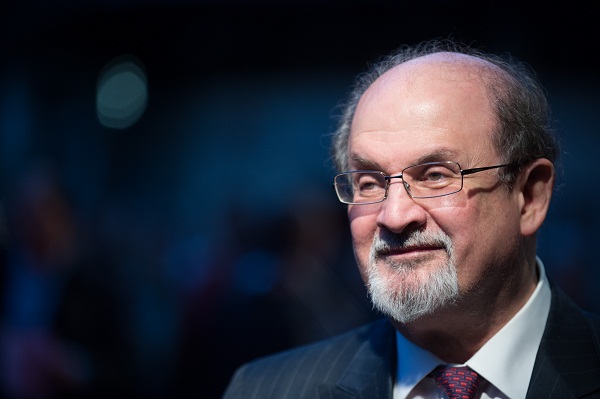The literary world anticipates Salman Rushdie’s response to Zoe Heller’s cauterisation of his memoir, Joseph Anton, in the New York Review of Books. Heller’s pointed review is deeply considered. It is a delight to read, even though some of its arguments are uneven and some of its conclusions are trivial next to the themes of Rushdie’s unlovely yet important book.
Heller is, in my view, right to slam the grandiloquence of Rushdie’s ‘de Gaulle-like third person’ narration. The technique succeeds in alienating Joseph Anton (Rushdie’s secret service nom-de-guerre) from normality; but its relentless oddness irritates to the point where the reader might lose sight of the fact that Joseph Anton is actually Salman Rushdie living in a grim part of the real world. It also leaves Rushdie open to mockery, perhaps deserved. The accounts of precious Joseph carousing with babes at Moomba and other flesh pots ‘to reduce the climate of fear around him’ are laughable.
Yet this particular criticism rather misses the point because Rushdie’s strange mix of heroism and preening is central to the book. Joseph Anton is the record of a brave yet self-regarding artist trying to live as he wishes. It’s a basic story about the most basic freedoms. You are not invited to like Salman Rushdie. Indeed, it is difficult to like him as he sets about his detractors, his wives and so on, and all the while he humbly compares himself to Joyce, Nabokov and Lawrence. But you are invited to answer a simple question: are certain ideas above criticism? On this question hangs everything.
Heller comes at it from an acute angle. She quotes a section of Rushdie’s book; then probes it. Here’s the quote from Joseph Anton:
‘When he was first accused of being offensive, he was genuinely perplexed. He thought he had made an artistic engagement with the phenomenon of revelation; an engagement from the point of view of an unbeliever, certainly, but a proper one nonetheless. How could that be thought offensive? The thin-skinned years of rage- defined identity politics that followed taught him, and everyone else, the answer to that question.’
Heller goes on to write, ‘Rushdie seems to be making the case for fiction’s immunity from political anger… literature, properly understood, cannot offend.’
That is to overstate the scale of Rushdie’s ambitions, at least where they are explained in Joseph Anton. The phrase ‘how could that be thought offensive?’ is certainly loose because it’s clear how The Satanic Verses might be thought offensive. In fact, it is perfectly reasonable to take offence; but the validity of that emotion lies in having given the offending article proper attention. The vital word in the paragraph from Joseph Anton, therefore, is not ‘offensive’ but ‘engagement’.
The key to the Rushdie affair is that theocrats and a good number of westerners declared themselves offended without bothering to engage. As Heller writes, ‘One of the great sorrows of the fatwa years for Rushdie… was the dismay that large numbers of people were incapable or unwilling to engage his “serious artistic intent”.’ You can ridicule the pomposity of the ‘serious artistic intent’. You can doubt its seriousness as art. But not to engage with Rushdie was to privilege certain ideas without testing them. Free societies cannot stand on such unequal ground.
That more than 50 people died as a result of this affair has prompted the question: is a book worth so much blood? The answer to that question has to be an unqualified ‘yes’, regardless of the tragic waste. Nothing is above inquiry; everything, even the sacred and holy, must be subject to dissent.
Joseph Anton is a flawed book in many ways, and perhaps it reflects its author’s foibles. Heller is convincing in her view that Rushdie fails his own test, laid out in the closing pages of the book, that literature exists to promote ‘understanding, sympathy and identification with people not like oneself…to make the world feel larger, wider than before.’ She concludes, ‘The world is as large and as wide as it ever was; it’s just Rushdie who got small.’ Maybe. But, on the hand, Joseph Anton concerns greater things than literature, things greater even than Salman Rushdie.






Comments